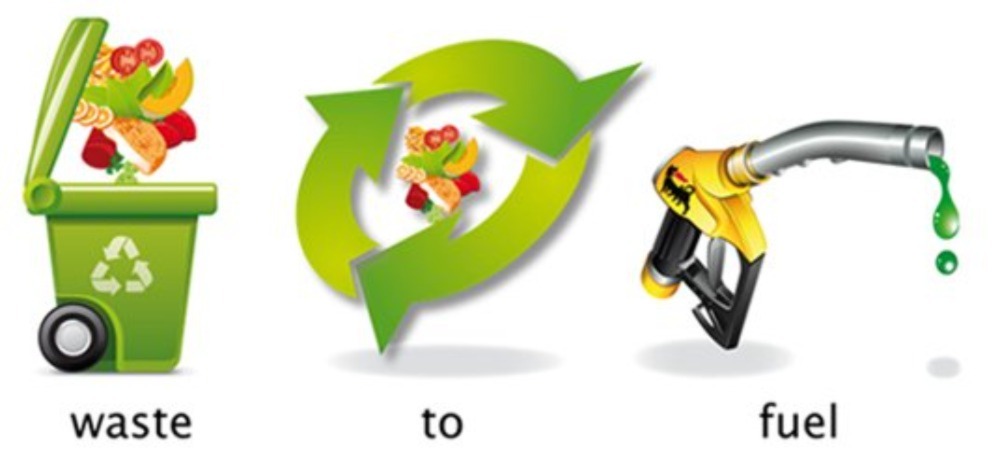Biofuels-Wealth from Waste
“I love the idea that biofuels have the potential to support farmers, especially the family farms” – Daryl Hannah
The tremendous increase of realm demand for energy, depletion of crude oil reserve, and increasing fossil fuel worth has led to a scenario in want of a different supply of renewable energy sources. In today’s world, there is an increasing demand for biofuels as an energy resource due to industrial development and population growth. Because of varied issues relating to the worldwide energy demand, biofuels have drawn a lot of attention worldwide.
Biofuels are usually derived from algal materials, plants or from animal wastes. Biofuels are usually advantageous when the cost of the increasing petroleum and rise in global warming is taken into consideration and it is also cost effective and environmentally friendly. The chief source of fossil fuel energy is petrol and diesel.
Biofuel when mixed with diesel/petrol is said to act as an oxygenate to burn hydrocarbons entirely decreasing emissions, particulates, and noxious gases. Due to the persistent exhaustion of fossil fuels, the mandate for worldwide bioethanol is increasing relentlessly. Conferring to a report, by Forbes, India is said to produce approximately 125 to 183 million tons of biomass remains, which possibly will be adequate to meet up to 59 % of India’s gasoline demand up to 2020.
Bioethanol
Bioethanol/Biobutanol are alternative sources of biofuel that are integrated with fossil fuel in a defined proportion and used as a substitute for fuels like diesel and gasoline. Most of the 20% bioethanol may be integrated with fuel to be used as a different fuel supply in the same petrol engine. Bioethanol and Biobutanol are said to be renewable sources of energy that are usually produced by the fermentation of reducing sugars. Growing energy needs and the faster depletion of fossil fuels demands for the production of alternative renewable energy sources.
Bioethanol is usually produced by fermentation of sugar or starch. The other type of biofuels are methane gas and biogas that are usually produced by the degradation of biomass. The major disadvantage of this biofuels is that, the fuel crops will be grown more than that of the food crops which may lead to the rise in food costs.
Mostly corn, soybean, wheat, maize could be used as a source of biofuels. Biobutanol has gained importance due to its higher energy density, less hygroscopic, high viscosity, low corrosivity and lower heat of vaporization.
Biobutanol
Biobutanol is an elite source of fuel when compared with bioethanol and biodiesel, due to its high Oxygen content and less Nitrogen Oxide emission.The properties of biobutanol is similar to that of gasoline, so it can be used directly as a fuel without altering the current engine system and pipelines of the current existing vehicles. It can be blended with petrol or biodiesel and used as fuel for vehicles. Biobutanol is an eco-friendly fuel derived from the organic biomass like agro wastes, algae by alcohol fermentation which reduces the emission of greenhouse gases. Biobutanol has higher energy value that it produces 25% more energy as compared with ethanol.
The speedy upsurge in the capacity of biomass remains is one aspect of the environmental catastrophe, complementary to worldwide development. The most common practices of waste handling are uncontrolled clearance, which causes mainly water and soil pollution. Paper and pulp industries produce about 300-350 million tons of various types of paper and board worldwide.
A smaller part of waste paper materials are reprocessed, while most of the used materials are thrown out or burned. Plant-based biomasses are regarded as abundant, renewable, and inexpensive sources of raw materials that accumulate in the world in huge amounts. Formerly efforts for biofuel production used crops like sugarcane, sorghum, and maize, which have been categorized as First Generation Biofuel. However, various developing countries fronting food security alarms cannot avert food crops for biofuel production. Not only plant-based biomass, even the wastes derived from our homes like fruit peels, vegetable peels, and other sugar-based waste biomasses are used to produce biofuel.
Biofuels produced from these wastes are proven to be real gold, as it has been considered as wealth from the waste approach. These tones of wastes derived from agricultural, residential, industrial sources, etc., are used in the production of biofuel. This alternative biofuel is said to rule the fossil fuel in the near future. Hence, these fuels derived from waste are said to be more promising than fossil fuels.
(Content Courtesy: https://www.smartcitiescouncil.com/article/converting-solid-waste-bio-fuel-its-all-happening-nagaland)
(Image Courtesy: https://twitter.com/kiverco/status/694818215139086336 )

